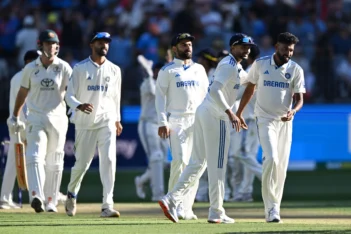The Board of Control for Cricket in India (BCCI) has announced significant changes to the participation rules for Under-19 cricket, aiming to provide more opportunities for young players.
Key amendments made by BCCI
- Extended participation for TW3 test failures: Players who fail the Tanner-Whitehouse 3 (TW3) bone density test can now participate in U-19 competitions for three years, up from the previous two-year limit.
- Relaxed birth registration criteria: Players with births registered more than two years after birth, but who pass the TW3 test, are now allowed three years of U-19 participation instead of two.
- Unchanged four-year participation rule: The counting of four seasons begins from a player’s first U-19 match participation, regardless of subsequent selection.
Good call for India?
As for “TW3 test, or Tanner Whitehouse 3 method, it is a skeletal maturity test or bone test that is conducted to determine the approximate age of a player. It is done at the under-16 level. These changes reflect the BCCI’s efforts to adapt to the challenges faced by young cricketers in proving their age eligibility.
The amendments particularly benefit players who may have had delayed birth registrations or those who mature physically at different rates.
The relaxed rules are expected to increase the talent pool for U-19 cricket in India, which will ultimately lead to stronger national teams and more opportunities for player development. With the next the U-19 season two years from now, these amendments are likely to have a significant impact on team selections and player careers in Indian youth cricket.






















































